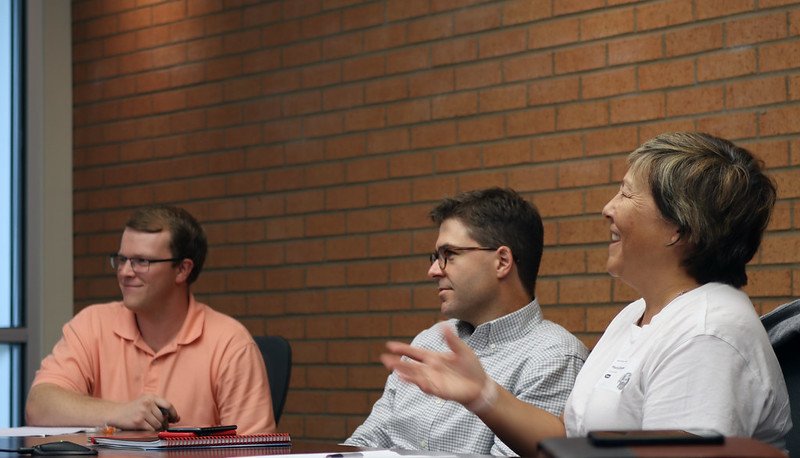By Ryan McGeeney
U of A System Division of Agriculture
LITTLE ROCK — The Cooperative Extension Service will host four workshops addressing federal crop insurance in January and February of 2024.
PROTECTING YOUR WORK — The Cooperative Extension Service will host four workshops addressing federal crop insurance in January and February of 2024. (DIvision of Agriculture photo.)
The workshops will be held Jan. 19 in Batesville, Jan. 22 in Pine Bluff, Jan. 30 in Forrest City and Feb. 20 in Monticello. The workshops are free to attend. Interested parties can register online. Agendas for the workshops can be found here.
Hunter Biram, agricultural economist for the University of Arkansas System Division of Agriculture, said the workshops will provide attendees with detailed information of many aspects of crop insurance programs.
"Participants can expect to receive information from agricultural economics faculty and USDA-RMA Navigators covering a wide array of federal crop insurance topics,” Biram said. “ Presentations will be given that describe how to apply for crop insurance with a local crop insurance agent and describe various products such as pasture insurance, whole-farm insurance, and yield and revenue insurance.
“There is a topic relevant for any operation regardless of whether a producer raises cattle, grows cash crops or produces fruits and vegetables,” he said. “Workbooks covering all these topics and more will be provided for registrants."
The first three workshops will run from 9 a.m. to 1 p.m. The final workshop, scheduled for Feb. 20, will run from 3 p.m. to 7 p.m. Each workshop includes lunch or dinner. The workshops are supported by funding from USDA-NIFA, the Southern Risk Management Education Center, and the Fryar Price Risk Management Center of Excellence, Biram said.
Each workshop will include presentations from Biram and other cooperative extension specialists, including livestock economist James Mitchell, RMA Navigator Project Specialist LaGrand Elliott, agricultural economist Ryan Loy and others.
To learn about extension programs in Arkansas, contact your local Cooperative Extension Service agent or visit www.uaex.uada.edu. Follow us on X and Instagram at @AR_Extension. To learn more about Division of Agriculture research, visit the Arkansas Agricultural Experiment Station website: https://aaes.uada.edu/. Follow on X at @ArkAgResearch. To learn more about the Division of Agriculture, visit https://uada.edu/. Follow us on X at @AgInArk.


